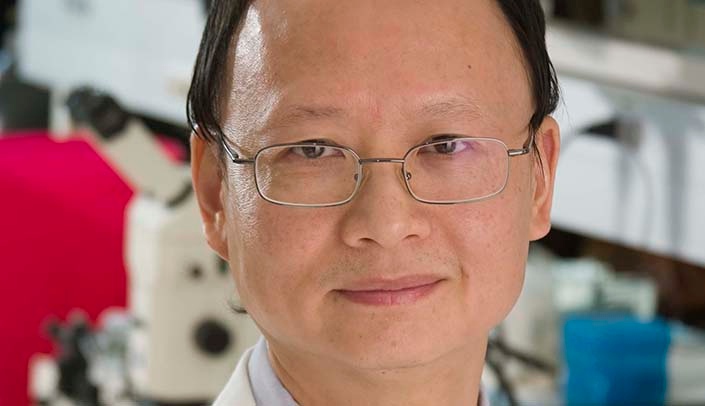Heart failure patients suffer from a reduced ability to participate in day-to-day activities and exercise, which contributes to poor quality of life.
UNMC researchers recently published an article in the Journal of Applied Physiology that suggests that curcumin improves exercise capacity in mouse models experiencing heart failure by improving skeletal muscle strength and endurance. Researchers hope the study can ultimately be translated into clinical practice to benefit patients with chronic heart failure.
Curcumin is found in turmeric, a member of the ginger family. Ginger is widely used as a spice and in folk medicine.
The project is part of a five-year grant awarded in 2015 to the lab of Irving H. Zucker, Ph.D., designed to determine the role of antioxidant enzyme expression in heart failure. Researchers hypothesized that increasing antioxidant capacity in muscle in the heart failure state would improve exercise endurance.
“This study showed an important proof of principle,” said Lie Gao, Ph.D., assistant professor of cellular and integrative physiology and corresponding author of the paper. “Some foods and spices, such as broccoli and turmeric, contain a rich supply of antioxidant compounds.
“Consumption of these foods or spices may improve skeletal muscle health. For patients with stable heart failure that have limited ability to exercise, compounds like these may be beneficial.”
Heart failure causes weakening of the heart and affects the heart’s ability to pump enough blood to meet the body’s needs. It’s estimated nearly 6 million people in the U.S. live with heart failure.
Though the disease is chronic, progressive and incurable, medications and lifestyle change can help people live longer, more active lives. Regular exercise helps patients tolerate more activity, while reducing fatigue and improving their mood.
Previous scientific studies suggested that targeting skeletal muscle with antioxidants might be beneficial in heart failure. Studying heart failure as well as peripheral vascular and autonomic functions have been long-term research objectives in Dr. Zucker’s lab.
Dr. Gao said though it’s not possible to use curcumin in humans due to the high doses of curcumin needed, other antioxidants such as dimethyl fumarate, which has similar effects as curcumin, could be used. The drug is currently being used to treat multiple sclerosis and will be tested in cardiovascular diseases.

Excellent work. Congratulations!